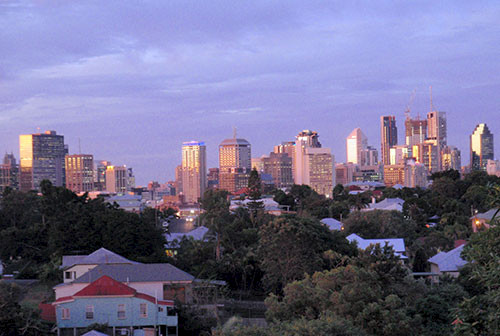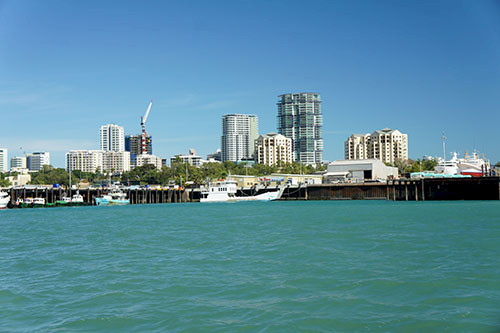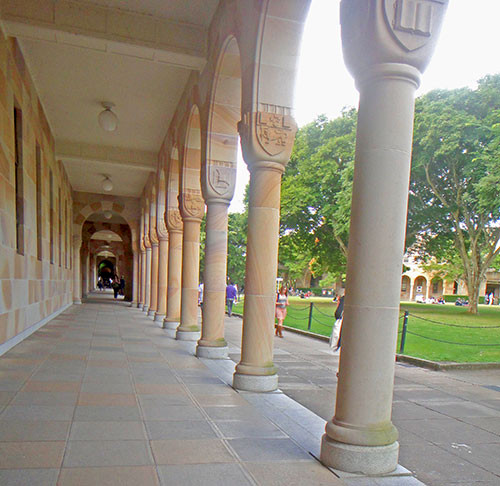Australia reflections
Bill Dennison · | Learning Science |The most striking thing I noticed about Australia was the booming economy due to mineral resources. This included coal mining in Queensland and offshore gas and oil in Western Australia and Northern Territories. In addition, the live cattle and sheep trade with the Middle East and Indonesia was large. Flying into Mackay and seeing two dozen freighters anchored offshore and watching mile-long coal trains coming into the port, experiencing the traffic jams and seeing 'No Vacancy' signs at every motel were clues that something was going on. The number of building cranes in downtown Brisbane with a skyline that was almost unrecognizable from nine years ago also was indicative of a resource boom in Queensland. Many Australians talked about the Global Financial Crisis (GFC), but compared to the U.S., Australia was booming. Similar to Mackay and Brisbane, I observed signs of rapid growth in Darwin and Perth, but Sydney and Melbourne appeared to be less affected.


The universities in Australia appeared to be quite healthy, with major construction and swelling students numbers. The University of Queensland under the leadership of recently retired Vice Chancellor Professor Paul Greenfield is particularly impressive. Recruitment of stellar faculty, creation of superb research and teaching infrastructure, and creative, forward-thinking initiatives are some of the reasons that this institution is becoming a world-class university. One trend that I do not think is healthy is the push to have three year PhD programs that immediately follow a one year Honours program and a three year Baccalaureate degree. This reduces the needed apprenticeship period of mentoring that I feel is required to adequately train a researcher or educator. The net result of having twenty five year old PhDs who don't have much training or exposure beyond their narrow field of expertise is not particularly conducive to producing interdisciplinary problem solvers.

A noticeable improvement in environmental monitoring has occurred in Australia. The creation of the Terrestrial Ecosystem Research Network (TERN), the development of agency based monitoring activities, and the increased networking at the national level has led to more and better environmental monitoring. There are opportunities developing for comparative analyses of this environmental monitoring data over both time and space scales. There is a major opportunity for academia to become engaged in these analyses.
Due to Australia's vulnerability to climate change, the recognition in academia, government and the general public that climate mitigation and saltation is needed was refreshing. The climate debate is politically polarizing like in the U.S., but the debate is about the best approaches for responding to climate change, rather than whether or not it is occurring. The manifestations of climate change are profound in Australia and retrospective analyses reveal that climate impacts have been occurring for some time. Australia could become a world leader in climate research and societal response.
One of the bright lights in Australian research is coral reef research, exemplified by research at James Cook University (Coral Reef Centre headed by Professor Terry Hughes), the Australian Institute of Marine Science, and the team of resource managers at the Great Barrier Reef Marine Park Authority. Seagrass and mangrove research, the other major tropical marine ecosystems, is also particularly strong in Australia.
About the author
Bill Dennison

Dr. Bill Dennison is a Professor of Marine Science and Vice President for Science Application at the University of Maryland Center for Environmental Science.